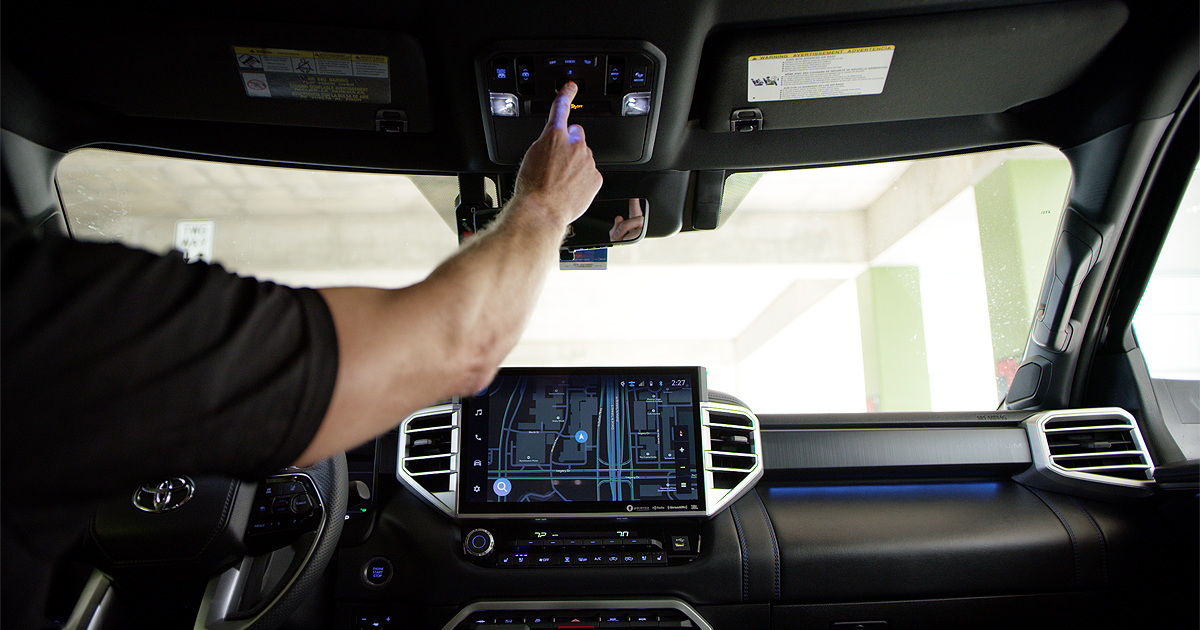
Toyota Motor Corp. and General Motors already walk divergent paths in their assessments of the future of electric vehicles.
Now there’s another space where the two top-selling automakers in the U.S. and relatively friendly rivals will operate in opposition: connected cars.
Toyota announced last month that it would begin offering 10-year free trial periods on its core Safety Connect and Service Connect systems, beginning with 2023 Toyota and Lexus models — as well as some 2022 Toyota Tundras — equipped with the automaker’s new built-in-house infotainment systems.
The trial periods mean that human-assisted services including automatic collision notification, stolen vehicle location, vehicle service and health alerts, and emergency roadside assistance will be delivered free of charge for at least a decade, even if the vehicle changes owners. And it comes just a few months after GM began charging a mandatory one-time $1,500 subscription fee for its similar OnStar service in some vehicles.
“The reason we provide all this functionality and this connectivity for safety is what customers care about,” said Steve Basra, group vice president for connected technologies at Toyota Motor North America. “I think it’s our duty as OEMs that we provide this, where the customer doesn’t have to think about them, doesn’t have to subscribe to them, and we’ve figured out a way to do that, because it contributes to society.”
Toyota and Lexus will provide the connected services, which enable drivers to summon help through a central call center simply by pressing a button in their vehicle. Previously, the service was delivered free for at least one year, then subject to a subscription plan. Older vehicles will retain the previous arrangement, Basra said, in part because existing third-party agreements would be disrupted. Toyota’s current plans vary by model in terms of availability. Safety Connect currently costs subscribers $8 per month.
Basra said that maintaining call centers is expensive for automakers, but he argues that providing the connected assistance services free for 10 years pays for itself in helping to cement the bond between automaker and customer.
“It’s not just about making money; it’s about providing these beneficial services that really help customers in a time of need,” Basra said. “You hope that most customers never need to use these services, but the one time they do, they can know there will be someone at the other end of the call.”
Toyota will still continue to offer subscription-based services — its Drive Connect cloud-based navigation system currently has a $16 monthly subscription, while its Remote Connect app-based remote start subscription sells for $8 per month — even as it provides the safety and service connection services essentially for free, at least during the first decade of ownership. Basra said he believes Toyota can cover its ongoing operations costs with that revenue, enabling it to give away the more critical safety and service connected services.
“I’ve prioritized around safety and security because I don’t think people should pay for that,” Basra said.